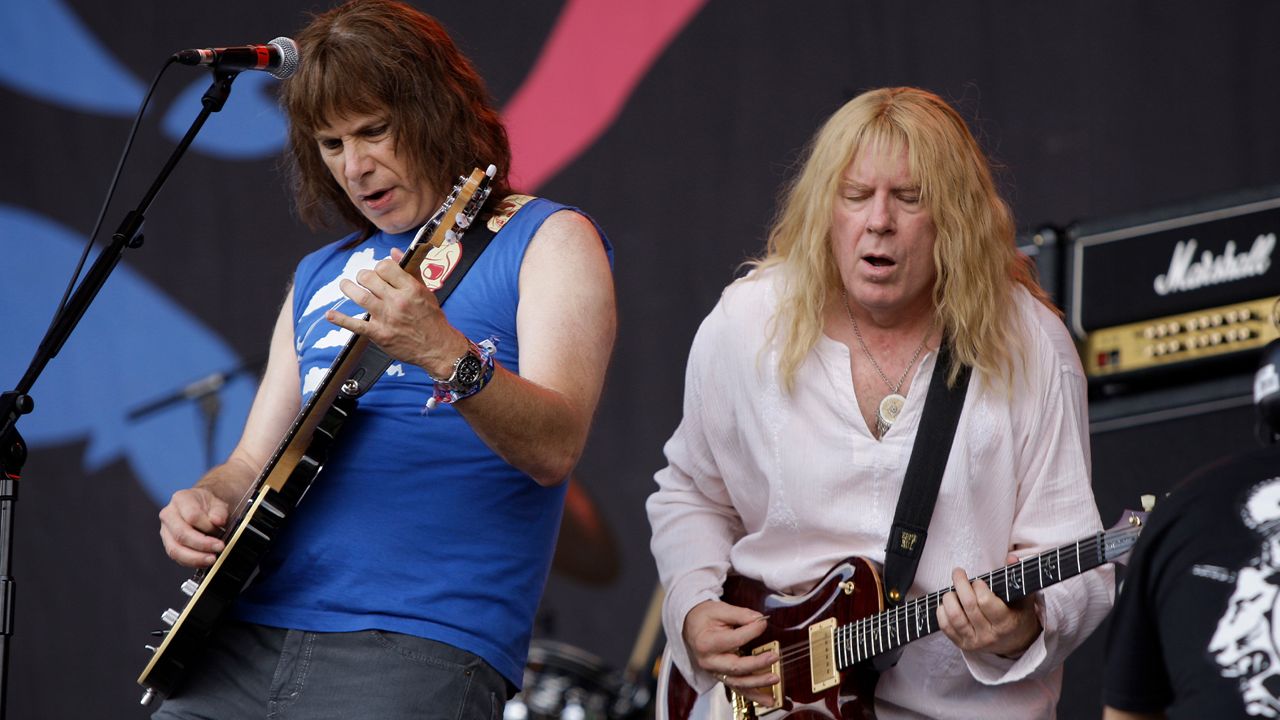LOS ANGELES (CNS) — With a settlement reached in a long-running legal dispute in Los Angeles, the creators of This Is Spinal Tap announced the formation of a wholly owned company to manage the licensing of the mockumentary and all related matters.
After four years in Los Angeles federal court, comedian-actor Harry Shearer and his colleagues have come to an agreement with Vivendi and its StudioCanal movie division, attorneys said in court papers Wednesday.
No details were given of the "full and final settlement of all of the parties' claims and counterclaims," according to the stipulation to permanently dismiss the action.
Shearer posted a release on his website this week that starting Jan. 1, all featured "Spinal Tap" characters, trademarks and associated rights will be licensed via Authorized Spinal Tap LLC.
"Together, the four creators intend to ensure the film continues to be available for existing and future Spinal Tap fans for years to come," according to Shearer. "Band members David St. Hubbins, Nigel Tufnel and Derek Smalls were unavailable for comment."
Shearer sued the French conglomerate in 2016, accusing the company of manipulating financial information about the cult film and its spinoffs in order to underpay royalties. His "Spinal Tap" co-creators, Christopher Guest, Michael McKean and Rob Reiner, subsequently joined as co-plaintiffs.
The suit sought at least $400 million in damages for the film's creators. Financial details of the settlement were not disclosed.
Shearer -- known for voicing nearly two dozen characters on "The Simpsons" -- co-created the 1984 film that follows the exploits of the much- troubled fictional heavy metal group Spinal Tap. Shearer portrays the group's bass player, Derek Smalls.
According to the suit, the film and its music "have remained popular for more than 30 years, and have earned considerable sums for the French conglomerate Vivendi SA. But not for its creators."
The lawsuit alleged that despite two theatrical releases of the film and repeated re-selling of rights that earned profits for multiple companies, Vivendi insisted that the total share of worldwide merchandising income for the film's four creators -- including director/narrator Reiner -- totaled $81 between 1984 and 2006, while total income from music sales from 1989 to 2006 was $98.
The plaintiffs settled their dispute with Universal Music over the soundtrack in November 2019.



